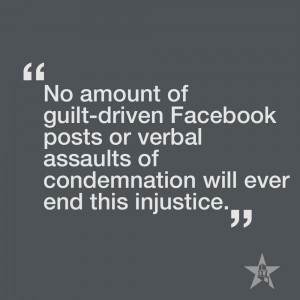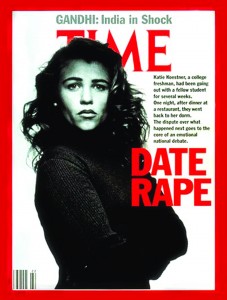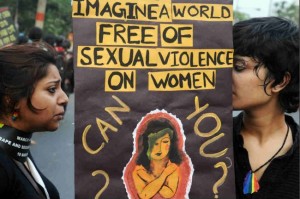Abortion. The unspoken elephant in the room. We need to talk about this. We need to be proactive about addressing this issue. Abortion is not going away. No amount of guilt-driven Facebook posts or verbal assaults of condemnation will ever end this injustice.
 Most Christians can agree that abortion is immoral. But the way many Christians handle this issue is embarrassing. A typical response is close-minded and shallow. If clarification is needed: I am a Christian. The reader needs to know that I have had experience with this issue. Unlike many, who voice their opinions, I know firsthand what it feels like to consider abortion. I was raped when I was eighteen. Put in context, I became a Christian two years later. But after the assault, I had a choice to make. I didn’t want to face the shame and consequences that accompany sexual assault.
Most Christians can agree that abortion is immoral. But the way many Christians handle this issue is embarrassing. A typical response is close-minded and shallow. If clarification is needed: I am a Christian. The reader needs to know that I have had experience with this issue. Unlike many, who voice their opinions, I know firsthand what it feels like to consider abortion. I was raped when I was eighteen. Put in context, I became a Christian two years later. But after the assault, I had a choice to make. I didn’t want to face the shame and consequences that accompany sexual assault.
After I became a Christian, one night at a worship service I felt a deep regret for the actions I chose in the aftermath of being raped. The message had nothing to do with abortion, but I left with a need to address the consequences of my actions. I decided to join a post-abortion Bible study at Carenet, a local crisis pregnancy center near my hometown.
The reason I bring this topic up is because I haven’t been able to avoid it in my private life. One night this summer, I was spending time with a good friend. The end of the night approached and I was driving her back home. She didn’t know about my past. Two minutes before we reached her house, she blurted out, “Abortion is murder! If I were raped tomorrow I still would never choose abortion!” I applaud her for her passion, but I couldn’t help but call her bluff. There is no way she could know what her response to being raped would be.
It seems to me that for abortion not to be a viable option for many women, there must be structural change in education and welfare. This could be approached in two phases. There needs to be greater efforts in prevention that would include improvements in education, self-defense, and building a more positive self-image in Christ. To clarify, I feel there is a lack of proper education about what abortion is and what other options there are to choose from in the event of an unexpected pregnancy. There is also a lack of instructing women that their worth does not come from men, but from God. I also feel strongly that there needs to be self-defense classes taught to girls in high school, so that in a time of need she is prepared to defend herself.
The second phase would be improvements in assistance to those women who have chosen to carry their child until full-term. If the woman was raped, she needs counseling. I commend the efforts that have been made to aid women. At Carenet if the woman, or a couple (men do come too!) goes through an education program they will end up with a special gift at the end, such as a stroller, car seat, or crib. Ministries like this are a great start to addressing this issue!
My last concern addresses a subtle trend that accompanies the issue of abortion as well as the issue of premarital sex. I am disgusted with the immediate “labels” people, including Christians, assign to women who choose abortion, as well as the label given to women who choose to carry to full-term but don’t have the father present. In these situations, women are either considered murderers or whores. It is a lose-lose situation. Is this anyway to talk about a person? I don’t think so. We need to think carefully about how quick we are to judge a person’s actions before we know the entire context. We, as representatives of God, need to stand firm in our convictions; but at the same time, acknowledge that action is what brings about change. Our beliefs should drive our actions. Let’s bring glory to God and truly make an effort to end the global epidemic of abortion.



